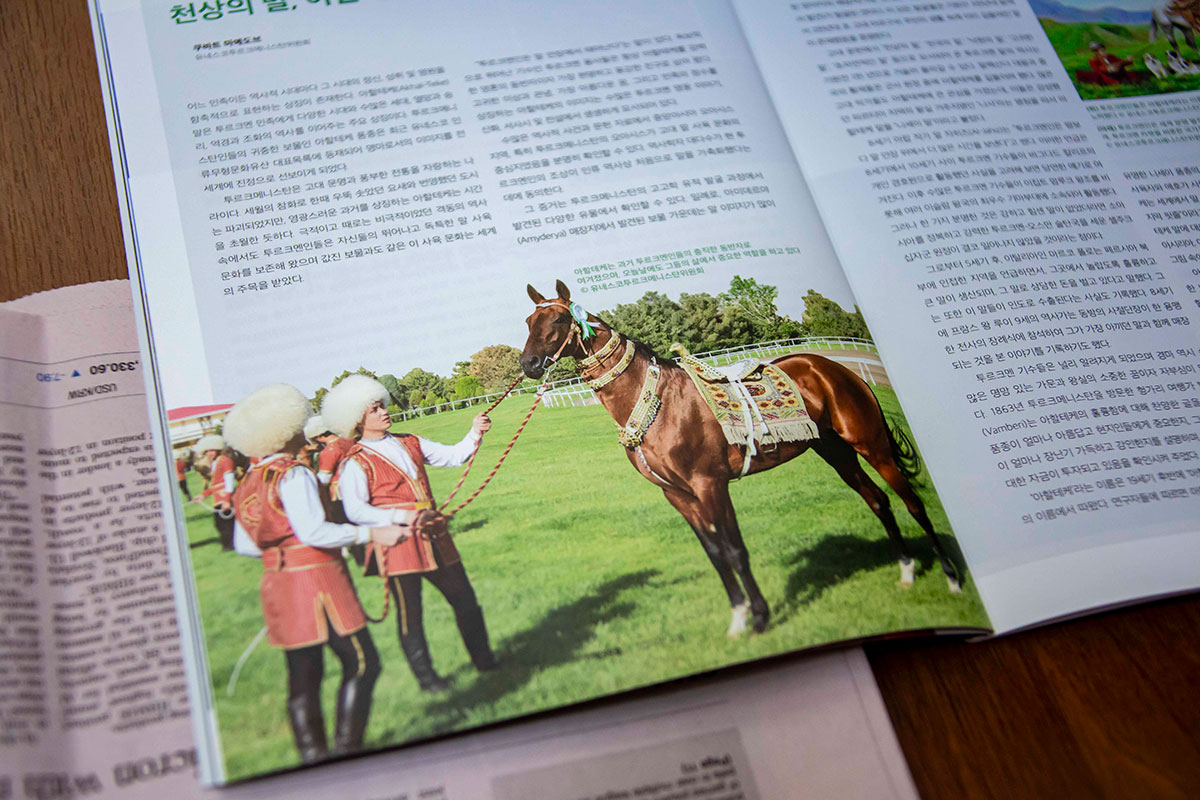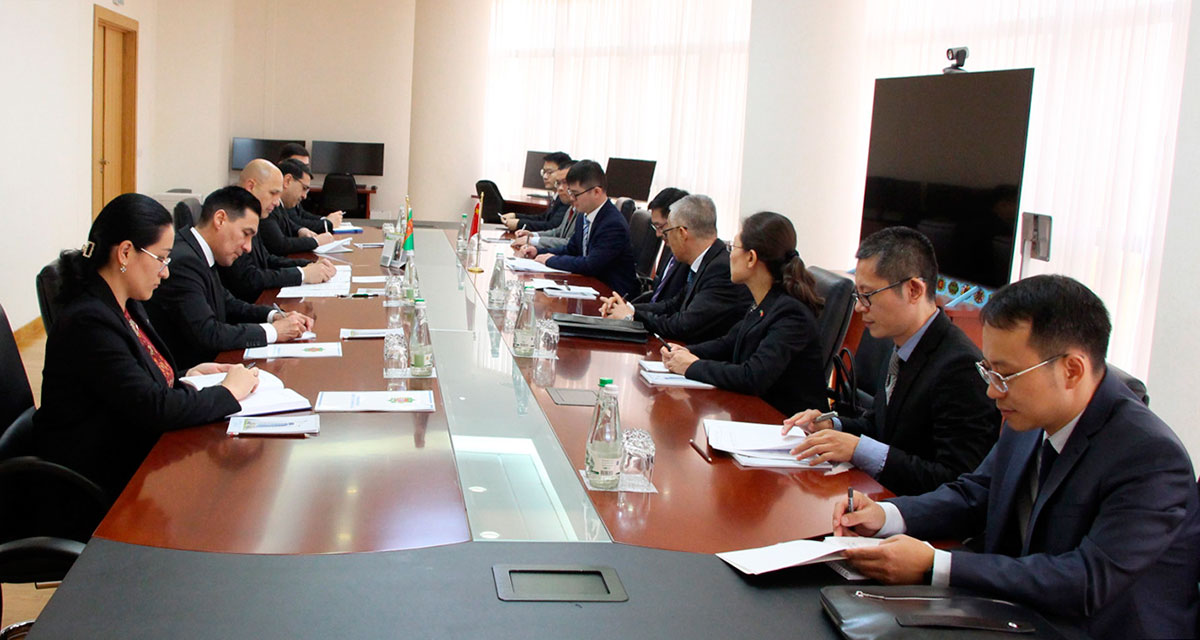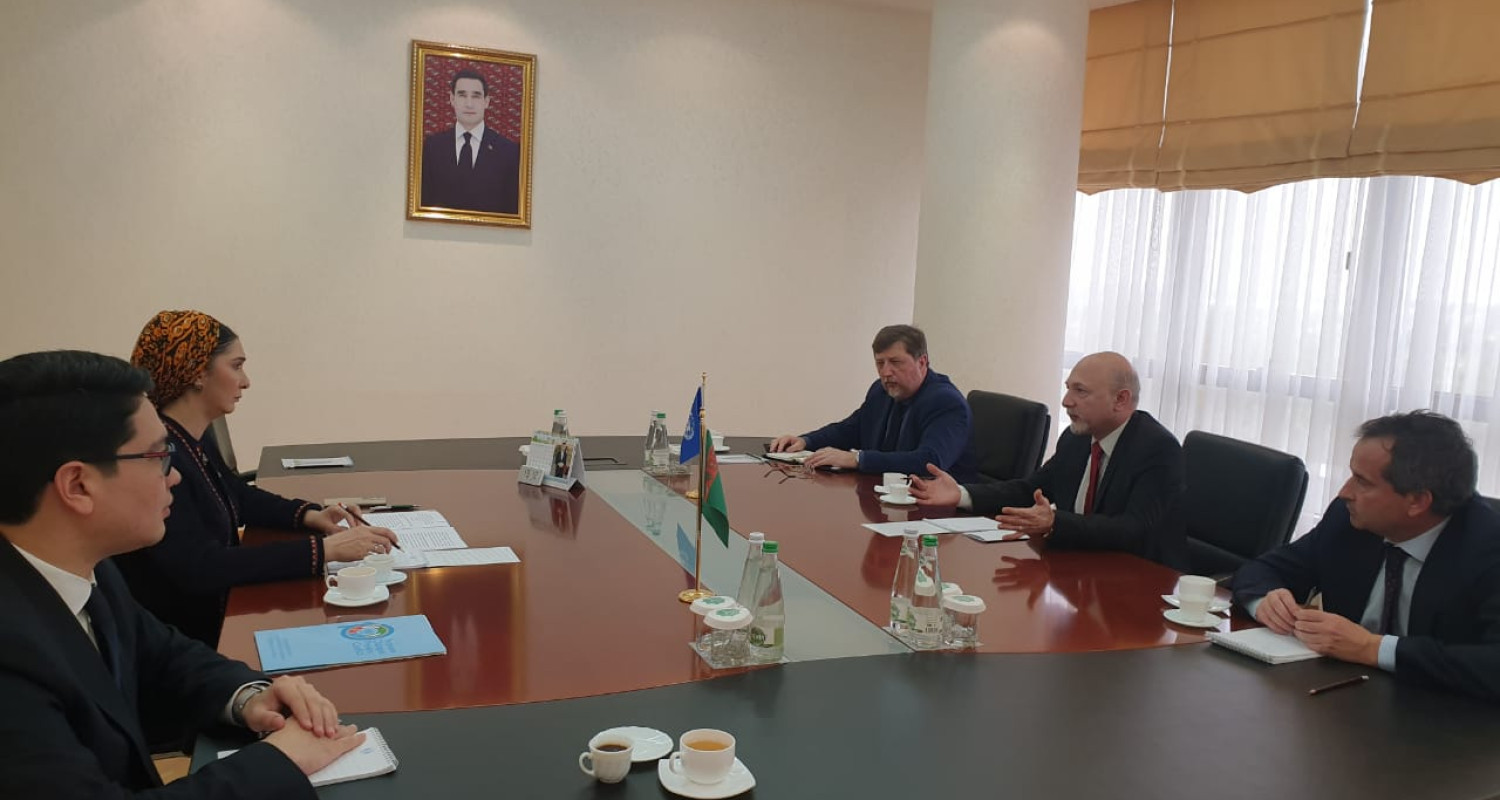During International Conference “Provision of Peace, Stability and Security: Strengthening of International and Regional Cooperation in Disarmament” organized by Turkmenistan and the Comprehensive Nuclear-Test-Ban Treaty Organization, Vice-premier, Foreign Minister of our country Rashid Meredov has highlighted the importance of provision of non-proliferation of weapons and disarmament mode as well as the role of our country in promotion of the Treaty on establishment of zone free from nuclear weapons in Central Asia.
This year, the Treaty on a nuclear-weapon-free zone in Central Asia, which was sign in Semipalatinsk by all states of the region on September 8, 2006, is 15 years. The document has come into force on March 21, 2009 and Turkmenistan has the main role in the process of further promotion and practical implementation of the Treat, which has been started at the first consultative meeting of the state members of the Treaty in Ashgabat on October 15, 2009.
The Treaty of nuclear-free zone was developed by international experts by the outcomes of the conference “Central Asia – Zone free from Nuclear Weapon”, which was held in Tashkent in September 1997. The adoption of the UN General Assembly’s Resolution No. 52/38S “Creation of zone free from nuclear weapons in Central Asia” has demonstrated wide international support to the determination of Central Asian countries to achieve set goal. Practical meetings for composing of the text of the Treaty have been held in number of cities including Geneva, Tashkent, Sapporo, Ashgabat and Samarkand. The goal of the Treat is to provide nuclear safety in Central Asian region, which has strategic geopolitical significance for the whole world. According to competent experts, the uniqueness of the Treaty on a Nuclear-Weapons-Free Zone in Central Asia is that new element of regional security has been created providing enforcement of the combating terrorism and prevention from acquiring of nuclear materials and technologies by non-government entities especially terrorists.
Special features of Central Asian nuclear-free zone are related to the fact that, first, this is the first zone made in the northern hemisphere, at the territory completely surrounded by land without any direct access to the ocean. The Central Asia is one of few regions of the world, which has common borders with big nuclear powers – Russia and China. Second, this is the first nuclear-free zone made in the region where big nuclear tests have been made before. Therefore, the Treaty contains the provisions for ensuring ecological and radiation safety and rehabilitation of the environment. Third, unlike similar treaties, the Treat provides signing of Addition protocol between all members of the Central Asian zone and IAEA for monitoring of the zone.
The establishment of nuclear-free zone has become actual contribution of Central Asian countries to the non-proliferation of nuclear weapons mode, to support of the idea of indivisibility of security as one of fundamental principles of the UN. According to international law, nuclear-zone is represented by the territory of several states free from tests, production, location, storage and transit of nuclear weapon. The members of nuclear-free zone undertake not to produce, buy and admit nuclear weapon on their territories while the states officially having nuclear weapons commit not to break nuclear-free status of the countries from nuclear-free zone, refuse the use and threat of use of nuclear weapons against them.
Historical event has been held in the UN Headquarter on May 6, 2014 when representatives of nuclear five – USA, Great Britain, France, China and Russia, have signed the Protocol on Security Assurances to the Treaty on a Nuclear-Weapon-Free Zone in Central Asia for the first time since the foundation of the United Nations. It meant that the world has become safer in full compliance with the principle “from provision of regional to global security”.
Priority positions of Turkmenistan at the 75th session of the United Nations General Assembly includes the following thesis: “Being a member of fundamental international treaties and conventions of the UN such as the Nuclear Non-Proliferation Treaty, Comprehensive Nuclear-Test-Ban Treaty, Treaty on Central Asia Nuclear-Weapon-Free Zone and number of other multilateral documents, Turkmenistan intends to continue providing comprehensive support to disarmament process in the region and the world”.
The country stands for the soonest entry of the Comprehensive Nuclear-Test-Ban Treaty into the force, on which further construction of global architecture of nuclear non-proliferation depends in general. Turkmenistan actively participates in further promotion of the Treaty on Central Asia Nuclear-Weapon-Free Zone and its practical implementation.
Turkmenistan sees coming Review Conference of the Members of the Nuclear Non-Proliferation Treaty as an opportunity to strengthen obligations of the sides under the Treaty against the background of modern trends in reduction of level of stability in the sphere of control of armament and non-proliferation mode. Considering further improvement and expansion of the network of relative structures of the UN as one of practical measures in implementation of steadfast measures in disarmament sphere, Turkmenistan proposes to review the subject of establishment of Sub-regional UN Center for disarmament in Asia.
Ogulgozel REJEPOVA
Photo by Yuri SHKURIN






